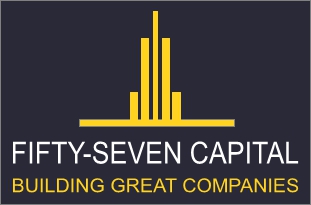Achieving Higher Returns: How Search Fund And Independent Sponsor Return 32% IRR (Internal Rate of Return)
Table of Contents
Revealing the Secrets of How Search Fund And Independent Sponsor Return 32% IRR to Other Asset Classes
For Search Funds to achieve an impressive return of 32% IRR within 5-6 years, specific metrics, as noted further below, must be met. Stanford’s 2020/2022 traditional search fund studies reinforce this, demonstrating an average IRR of 32.6-35.3% and a 5.2-5.5x return on invested capital for Search Funds. Although the Stanford Studies are specific to the Traditional Search Fund model, the Search Fund and Independent Sponsor IRR model, and arguably even micro-PE (micro private equity), share similar key metrics and should deliver similarly outsized returns when compared to other investment classes, such as traditional venture capital and private equity.
The 2020 Standford Search Fund Study noted that between 1984 – 2019, at least $1.4 billion of equity capital was invested in search funds and their acquired companies, generating approximately $6.9 billion of equity value for investors and an estimated $1.8 billion for entrepreneurs.
The 2022 Standford Search Fund Study noted a record $776 million was invested in traditional searchers and search acquired companies in 2020 and 2021. From 1986 through 2021 a total of $2.3 billion of equity was invested, generating approximately $9.8 billion for investors and $2.4 billion for entrepreneurs. Returns from all search investments since 1986 increased slightly in the 2022 study compared to the 2020 study, with aggregate pre-tax returns of 35.3% internal rate of return (IRR) and 5.2x return on investment (ROI)*. During 2020-2022, four new companies achieved ROIs in excess of 10x, raising the total number of search funds with greater than 10x return to 17x.
This Search Fund And Independent Sponsor Return 32% IRR outshines the top quartile of Venture Capital and Private Equity funds in the US, which averaged 24% and 19% returns, respectively, between 1995 and 2018, according to research conducted by Cambridge Associates.
* In these studies, all returns calculations cap the return from the highest returning search fund at 200x ROI, based on transactions in the mid 2000’s
Advantages of Embracing Search Fund Criteria
The Search Fund criteria aim to strike a delicate balance between low risk and high leverage in investment decisions. Imagine it as akin to a real estate investment generating revenue but with significant growth potential. Real estate assets are leveraged heavily upon acquisition, aiming to sell at a higher price within a few years, maintain a stable and low-risk positive cash flow to meet interest payments, and, in the best cases, repay the acquisition leverage before selling, offering the opportunity to refinance or sell at a much higher equity value.
A Search Fund investment shares many of these characteristics. Investments are structured with acquisition financing, reaching up to 80%. Given the limited investment options in SMEs (small and medium-sized enterprises), there’s potential for an arbitrage in the acquisition/exit multiple. This is because, at the target EBITDA (earnings before interest, taxes, depreciation, and amortization) range of $1-5 million, SMEs are often too small for most strategic multinational investments, unattractive to VC (venture capital) funds, and below the minimum ticket size of mainstream PE funds.
The Search Fund’s objective is to grow the business within the 5-7 year threshold of interest for Strategic investments and PE firms, an ideal scenario for achieving higher multiples. Additionally, the goal is to repay the acquisition finance debt from the acquired company’s free cash flow, further enhancing exit returns.
The following criteria guide Search Funds to identify optimal SMEs that can provide the necessary stability and low-risk environment for this delicate balance to work consistently:a
- Recurring Revenue: Ensures a steady and predictable cash flow, enhancing stability and cash flow management during ownership transitions.
- Consistent EBITDA ($1-5M): Signifies a robust and stable company with resilience through various economic conditions.
- Efficient EBITDA: Aims to pay off acquisition debt before exit, reducing the risk of liquidity problems.
- High Margins: Provides a buffer during transitions and economic downturns, allowing operational maneuverability.
- Low CapEx Requirements: Increases free cash flow for business growth, reducing reliance on external financing.
- Barriers to Entry and Industry Stability: High barriers deter market disruption and VC-backed competition.
- Fragmented Industry: Lack of dominant competitors offers opportunities for consolidation and growth.
- Customer Diversity: Shields against revenue loss from a single customer.
- Low Reliance on Previous Owner: Ensures a smooth transition of ownership.
- Simple Operations: Simplified and well-structured operations enable quick profit maximization.
- Manageability of SMEs: Easier to handle compared to complex larger organizations.
- Riding Industry Growth: Benefits from the industry’s overall growth.
- Inherent Company Growth: A strong foundation for further growth.
Proven Criteria
Although stringent, these criteria have consistently enabled Search Funds to maintain Search Fund And Independent Sponsor Return 32% IRR since their inception. They offer a dependable framework, making the Search Fund model secure, comprehensible, and accessible to investors.
How To Sell Your Business: Collaborate with Industry Experts
The collaboration between Fifty-Seven Capital exemplifies the importance of working with industry experts when selling your business. These firms bring together a wealth of knowledge, expertise, and networks to facilitate a seamless transaction. Partnering with professionals who understand your industry can provide invaluable insights, ensure a smooth selling process, and help you achieve the best possible outcome.
Selling your business is a significant undertaking that requires careful planning, professional guidance, and strategic decision-making. By following these key strategies and seeking support from industry experts like Fifty-Seven Capital, you can navigate the selling process with confidence and maximize the value of your business. Embrace these insights to embark on a successful journey towards selling your business and realizing the rewards of your hard work and dedication.



